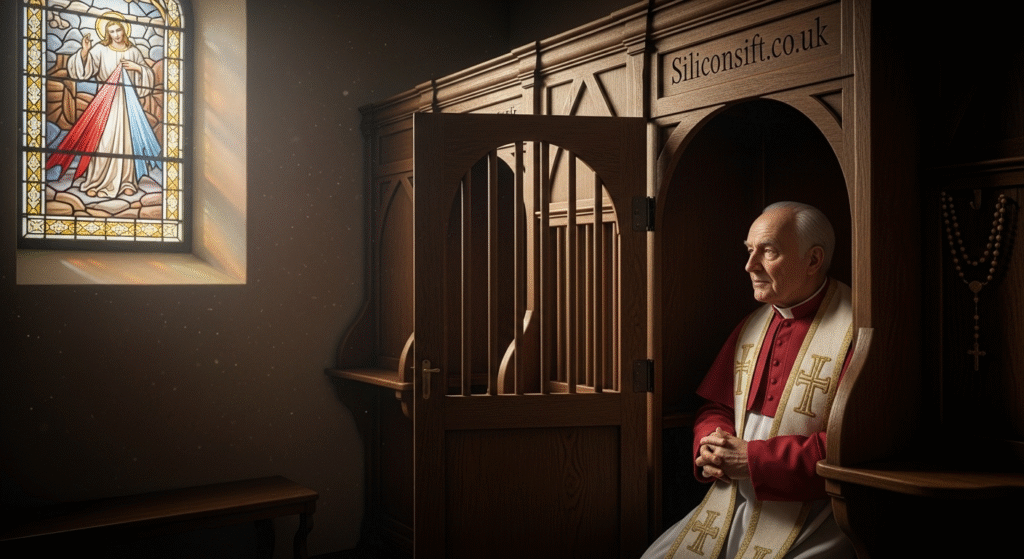Plenary Indulgence: A Powerful Gift and a Serious Call

Introduction
Have you ever wondered what a Plenary Indulgences really is and whether it matters for your spiritual life? The idea can feel mysterious or even confusing. Yet for many believers, a plenary indulgence is a gift full of hope and challenge.
In this article, you will find a clear, down-to-earth explanation of plenary indulgence: what it means, where it came from, how you can obtain one, and the spiritual risks or misunderstandings you should avoid. I’ll walk you through the history, the official rules, some common misconceptions, and practical tips for living it out.
Whether you are deep in your faith or just curious, I hope this helps you see plenary indulgence in a clearer light and decide for yourself how it fits into your spiritual journey.
What Is a Plenary Indulgence?
Definition and Basic Idea
A Plenary Indulgences is a remission before God of all temporal punishment due to sin. To say that more plainly: when a sin is forgiven in confession, there may remain an effect or “debt” of punishment (not eternal condemnation) that you still carry. A plenary indulgence, when properly received, removes that entire remaining debt.
It does not forgive the sin itself—that happens in confession—but it clears what lingers. So, in effect, a plenary indulgence is a kind of spiritual healing or purification granted by the Church through God’s mercy.
It is one of two types of indulgence: partial (which remits part of the punishment) and plenary (which remits all of it).
Why It Exists
You might ask: if confession forgives sin, why would indulgences be necessary? The answer lies in the idea that sins—even forgiven—have consequences or entanglements. Those consequences might be healed here on earth or through purification after death (in Catholic belief, in Purgatory).
The Church claims the authority to bind and loose, to distribute the merits of Christ and the saints, and so to assist believers in this purification. In that way, indulgences are an extension of mercy, not a rival to forgiveness.

History and Development
Early Practices
The concept of indulgences has roots in the early Church. Even in the first centuries, Christians believed in acts of penance, in prayer, in almsgiving, and in sacrifices as ways to express sorrow and heal the damage of sin.
Over time, theologians began to speak more explicitly about remitting temporal punishment through the Church’s authority. The medieval period saw the practice expand. The treasury of merit (the “superabundant merits” of Christ and the saints) became a theological foundation: the Church could draw from this treasury to help believers.
The Reformation and Reform
The misuse and abuse of indulgences became one of the flashpoints of the Protestant Reformation. Some preachers sold indulgences—or implied that a person could buy their way out of sin entirely. That caused scandal and conflict.
In response, the Council of Trent (1545-1563) reaffirmed the Church’s teaching on indulgences but condemned abuses. The Council insisted that indulgences must never be sold and must always be linked to proper disposition and penance.
Later, in the 20th century, the Church revised the norms (especially in the 1967 apostolic constitution Indulgentiarum Doctrina) to tighten rules, clarify misunderstandings, and emphasize interior conversion and holiness.
Conditions to Obtain a Plenary Indulgence
Getting a plenary indulgence is not automatic. The Church sets specific conditions so that the indulgence reflects genuine conversion, not a mechanical ritual. All the following must generally be met:
- Sacramental Confession
You must confess your sins in confession (usually within a short time before or after the indulgenced work). - Holy Communion
You must receive Communion (usually on the same day or within a few days). - Prayer for the Intention of the Pope
You must pray for the intention of the Supreme Pontiff. Often one Our Father and one Hail Mary suffice, or any other prayer. - Detachment from All Sin, Even Venial Sin
This is the hardest. You must be free from all attachment to sin—not just mortal sin, but even small sins you might cling to. - Perform an Indulgenced Work
You must do the specific act or prayer to which the indulgence is attached. For example, visiting a church on certain days, reading Scripture for a half hour, a pilgrimage, or other acts.
If you miss one of these conditions, the indulgence may be partial instead of plenary.
Common Types of Plenary Indulgences
Here are some examples of works or occasions where plenary indulgences may be granted (always subject to meeting the conditions above):
- Visiting a major basilica in Rome on certain days
- Praying before the Blessed Sacrament for at least half an hour
- Reading Scripture for at least thirty minutes
- Participating in certain missionary activities or devotional acts
- Making a pious pilgrimage to a shrine under specified conditions
- Praying the Rosary in a church or family group under certain conditions
The Church publishes a ritual or manual listing currently approved indulgenced actions. Always check your local diocese or the Apostolic Penitentiary for the updated list.
Spiritual Benefits and Why It Matters
Deeper Freedom
A plenary indulgence brings profound freedom. Sin—even forgiven—can weigh on your conscience or spirit. Relinquishing the temporal punishment clears more space in your soul to love God and others without lingering burden.
Participation in Communion of Saints
Indulgences lean heavily on the belief that Christ and the saints have “extra” spiritual merit available to the Church. When you receive an indulgence, you tap into that treasury. You are not acting alone—you are connected with a larger body of believers, past and present.
Encouragement to Holiness
Indulgences are not magic. They are meant to draw you into prayer, confession, devotion, good works, and interior conversion. They push you to be more vigilant about sin and more open to grace.
Support for the Dying
Traditionally, indulgences have been applied to aid souls after death (if the person meets the conditions). Some can be designated “applicable to the souls in purgatory.” That means believers can offer them on behalf of the deceased.
Common Misunderstandings and Pitfalls
“Buying” Salvation
One of the gravest misunderstandings is that indulgences are a kind of spiritual currency you pay for with money. That is false. The Church explicitly forbids selling indulgences. Any financial offering tied to an indulgence must be voluntary and directed toward charitable or ecclesial needs, not your own spiritual gain.
Counting on Ritual, Not Conversion
Sometimes people focus on doing the act (say, visiting a church) without caring whether their heart is in it. If there is no real repentance or detachment from sin, the indulgence may be rendered ineffective or reduced to partial.
Thinking It Replaces Confession
No. The indulgence presupposes confession. You cannot skip confession. The indulgence cleans up what remains after confession, not the sin itself.
Assuming You Get It Automatically
Even with a perfect ceremony, you must meet all the conditions. Failing in one makes it partial.
Overemphasis on Purgatory
Indulgences are not just tools for souls in purgatory. They are meant to shape your spiritual life now. If you treat them only as “insurance for later,” you miss much of their meaning.
Step-by-Step: How You Could Receive a Plenary Indulgence (Practical Guide)
Here is a simplified process you might follow (depending on your diocese or ritual):
- Learn Which Works Are Indulgenced
Check official lists or your diocese website. - Prepare Your Heart
Pray for the grace of true repentance. Examine your conscience. - Plan Your Act
Decide when and how you will carry out the specific indulgenced work. - Go to Confession
Preferably close in time to the act. Be thorough and sincere. - Receive Communion
Within a day or so of the indulgenced work. - Pray for the Pope’s Intentions
Recite the Our Father, Hail Mary, or another prayer as required. - Perform the Act Devoutly
Carry out the work with reverence and interior focus. - Detach from Sin
Keep in mind you must let go of sinful habits or attachments.
If you fulfill all these, you may receive a full, or plenary, indulgence.

The Toughest Requirement: Detachment from All Sin
This is often what trips up many. What does “detachment from all sin” really mean?
- It means you do not choose to sin, even venially.
- It means you have a spirit of humility and repentance, not pride or self-righteousness.
- It means you are actively working to remove sinful inclinations from your life.
If you still cling to a favorite sin, even a small one, the indulgence is no longer plenary but partial. Many spiritual writers say this is the hardest hurdle.
If I were advising a friend, I’d say: pray specifically for detachment. Be realistic about areas in your life you struggle with. Invite accountability or spiritual direction.
Examples in Practice
- Imagine you visit a major basilica on its feast day. You go to confession earlier in the week. You receive Communion that day. You pray for the pope’s intentions. You spend time in adoration. You have examined your life and resolved to fight habitual sins. That could qualify for a plenary indulgence.
- Suppose your parish publishes a special period for Eucharistic adoration. You spend 30 minutes in silent prayer before the Blessed Sacrament, fulfilling conditions. That, too, might qualify.
- If your diocese grants an indulgence for reading Scripture for thirty minutes in a devout way (reflecting, not skimming), and you satisfy the other conditions, that can also be a powerful opportunity.
The Role of the Apostolic Penitentiary and Church Authority
The Apostolic Penitentiary in Rome is the tribunal responsible for indulgences, including granting new ones, specifying conditions, and maintaining oversight.
They issue official documents defining indulgenced acts and how they are applied. Local bishops and dioceses generally follow these norms and publish guidelines so believers can know what is valid in their area.
Always check local authority rather than rely on hearsay or older books. Practices shift (sometimes modestly) over time.
A Balanced View: Praise and Caution
On the positive side, plenary indulgences are a rich spiritual tradition. They motivate confession, prayer, works of charity, conversion, and devotion. They remind us that faith is not passive but lived. They show the Church cares for not just our future but our current well-being.
On the caution side: they can be misused. Some might reduce them to legalism—as if we’re checking boxes. Some may rely on them as a shortcut, neglecting deeper faith. Some may be ignorant of the requirements and believe they have something they don’t.
We must treat them seriously, humbly, and faithfully. Discernment is key.
How This Relates to You
You might not ever seek out indulgences regularly. But knowing about plenary indulgence can help you:
- Understand your Church’s spiritual tools and how they function
- See confession and communion not as rituals but as transformative encounters
- Approach devotional practices with more depth and attention
- Recognize that grace is abundant, but you must cooperate with it
If you are discerning your spiritual life, I encourage you to try one indulgenced work when conditions are met. Watch how your heart responds. Use it as a way to deepen repentance, not to “get ahead.”
Conclusion
The plenary indulgence is a powerful spiritual gift, not a magic formula. It invites you into deeper conversion, freedom, and communion with Christ and His Church. It does not replace confession or sacrifice but builds on them.
If you walk through its history, understand its conditions, avoid misunderstandings, and approach it with heart, you may find it a real aid in your spiritual life.
Would you like to explore indulgenced works in your diocese or see which ones are active near you?
Let me know—I’d be happy to help.
FAQs
1. What is the difference between partial and plenary indulgence?
A partial indulgence remits part of the temporal punishment due to sin. A plenary indulgence remits all of it, given that conditions are met.
2. Can you get a plenary indulgence for someone who has died?
Yes, in some cases the Church allows you to apply indulgences to the souls in purgatory, provided the giver meets all conditions.
3. How often can one receive a plenary indulgence?
You can obtain a plenary indulgence multiple times, but you must satisfy all conditions each time (confession, communion, prayer, etc.).
4. Do indulgences still matter today?
Yes. While less emphasized in some places, indulgences still help deepen one’s spiritual life, draw you to confession and prayer, and remind us of God’s mercy.
5. Is there a list of current plenary indulgenced works?
Yes. The Church (through the Apostolic Penitentiary) and many dioceses publish updated lists. Always consult your local Church or diocese.
6. If I skip one condition (say Communion), do I get nothing?
You would receive a partial indulgence rather than a plenary one.
7. Does being imperfect in devotion void the indulgence?
If your heart is not properly disposed (e.g. lack of detachment), the indulgence may be reduced or lost. Proper interior disposition is essential.
8. Why must we pray for the Pope’s intentions?
This requirement expresses unity with the universal Church and the Pope’s pastoral mission.
9. Can indulgences be abused today?
Yes—if people treat them as magic, fail to include conversion, or misunderstand them. That is why clear teaching and spiritual direction matter.
10. How do indulgences connect with mercy and justice?
They express both: mercy because sin is forgiven; justice because their consequences are addressed and the soul is purified.
Also read Siliconsift.co.uk